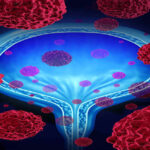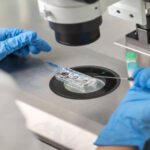An OBGYN helps you manage health conditions that may be contributing to fertility challenges. Fertility tests allow doctors to identify and treat issues that interfere with conception. Here are some of the factors influencing how long it takes to get an infertility diagnosis:
Age
An OBGYN understands the correlation between age and your fertility potential. As you age, hormonal levels shift, and the quality and quantity of your eggs reduce, affecting your ability to conceive. Age can also influence your ability to carry a pregnancy to term, especially when experiencing infertility. Reproductive health assessments help doctors identify fertility patterns that have changed with age. If your doctor establishes that you have a decreased ovarian reserve, they may suggest using an egg donor for conception. Ovarian reserve test results are often available within a week of testing.
Health History
Previous medical conditions can determine the diagnostic time frame and indicate proper testing modalities as you seek fertility treatment. Health histories allow OBGYNs to identify factors that interfere with reproductive functions or are probable causes for infertility, such as:
- Cycles
- Conditions
- Genetic histories
- Past surgeries
- Past or current medications
- Chronic conditions
This enables doctors to select targeted test procedures, minimizing the wait time incurred by potentially unnecessary testing. Reviewing your medical history also allows you and your doctor to develop a plan to counteract these factors and improve your chances of conceiving. A health history review may provide an immediate diagnosis, or further testing could be required.
Lifestyle Assessment
Your occupation, stress levels, and physical activity patterns help an OBGYN understand your lifestyle. These elements help your doctor identify lifestyle habits that may be affecting fertility. Occupations that require irregular sleep schedules, high levels of physical activity, or significant stress can disrupt the menstrual cycle and ovulation. Intense exercise routines can also have this effect.
A lifestyle assessment could also reveal environmental factors affecting your reproductive health. Exposure to chemicals or toxins at work might hinder fertility. Smoking or excessive alcohol intake may also contribute to fertility challenges. To improve the chances of conception, doctors often suggest lifestyle changes before ordering testing. It might take several months before these changes begin to affect fertility.
Diagnostic Methods
Advanced testing procedures such as ultrasounds, blood work, and imaging scans are often key for diagnosing fertility problems. For men, a sperm analysis test is usually recommended to assess the health and function of sperm. Doctors may also perform a pelvic exam to examine the uterus and fallopian tubes for any abnormalities.
Testing methods enable OBGYNs to pinpoint the causes or risks of infertility. Physical tests are followed by scans to narrow down specific reproductive problems and improve conception. The timing and order of implementation for diagnostic procedures depend upon various factors, such as age, medical history, and other underlying health conditions. Depending on the test, results can be available within a few days or a few weeks.
Seek Infertility Help
Regular exercise, balanced nutrition, and proper sleep patterns enhance your body’s reproductive capacity. Scheduling regular check-ups with an OBGYN supports early detection of fertility challenges. Contact a qualified healthcare provider today to begin your personalized infertility health assessment.
Stay Connected With: VistaMedium







